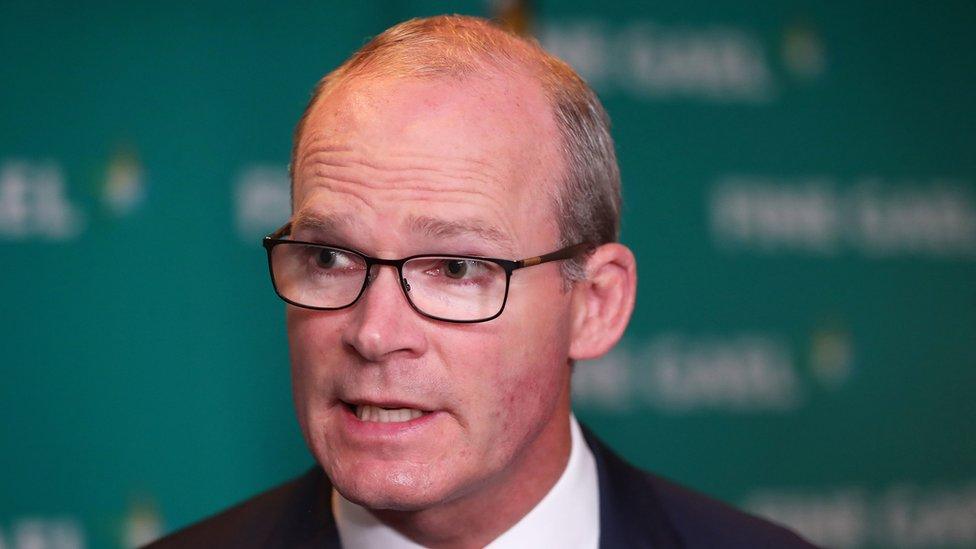Brexit: UK and EU will find 'durable' solutions to protocol
- Published
- comments
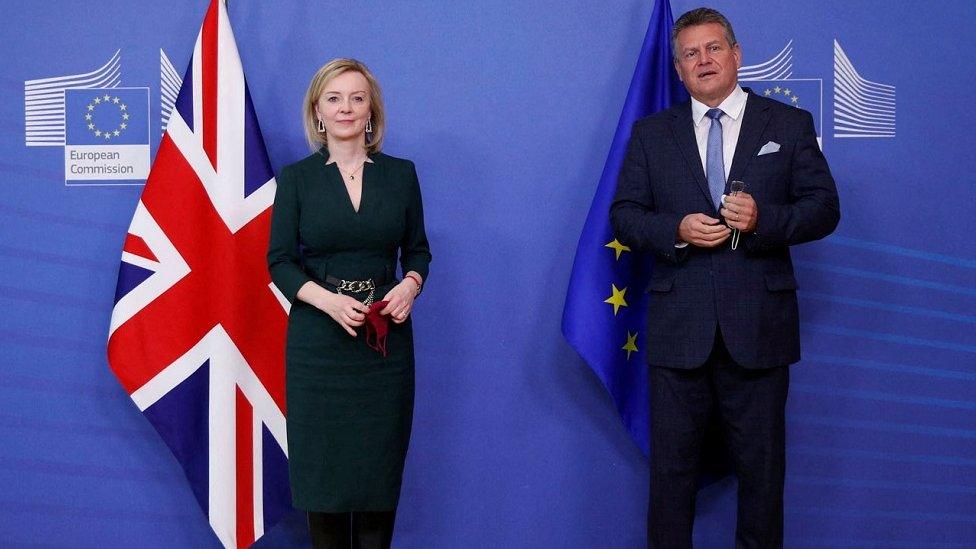
British Foreign Secretary Liz Truss and European Commissioner in charge of Brexit negotiations Maroš Šefčovič pose for a photograph in Brussels
Negotiations on the Northern Ireland Protocol will continue, the EU and UK's lead negotiators have said.
Foreign Secretary Liz Truss and European Commission Vice-President Maroš Šefčovič released a joint statement after Monday's talks in Brussels.
They said there is a determination that outstanding issues are addressed.
They are keen that "durable solutions are found for the benefit of citizens, businesses and stability in NI".
Their officials have been engaged in technical talks since October.
A senior EU official has suggested that the talks will happen in a more "discreet" way due to the forthcoming Northern Ireland elections.
They said it could mean less regular formal political meetings which "create a bit of expectation or excitement".
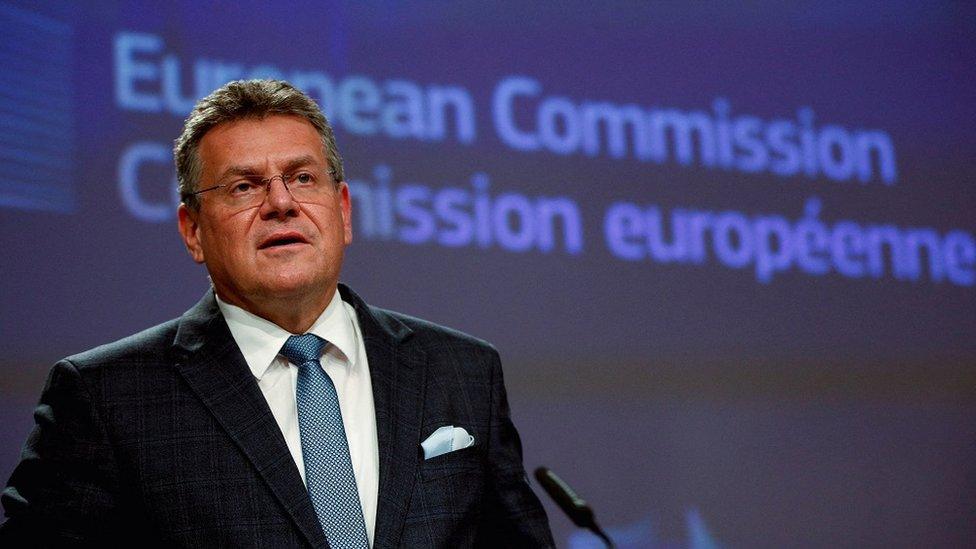
Maroš Šefčovič speaks during a news conference after a meeting the UK foreign secretary
The statement from Mrs Truss and Mr Šefčovič noted that: "The joint bodies established by the Withdrawal Agreement should meet regularly, and agreed to discuss any point raised by the EU or the UK that is of relevance to the Withdrawal Agreement in general."
The protocol is the Brexit deal which prevents a hard Irish border by keeping Northern Ireland inside the EU's single market for goods.
That also creates a new trade border between Northern Ireland and the rest of the UK.
The EU accepts that is causing difficulties for businesses and in October proposed a package of measures to reduce its practical impacts.
In December, it published further proposals aimed at guaranteeing the supply of medicines from Great Britain to Northern Ireland.
The UK wants more far-reaching changes to the protocol's operation and governance.
The EU official said that the technical talks had made some progress in trying to find ways to reduce the burden of customs paperwork on Northern Ireland businesses.
The EU believes it will be possible to reduce the data fields on customs declarations from 80 to 30.
The UK believes that the reduction should be greater with traders only needing to use customs codes which would describe goods in high level terms.
But the EU says that for the purposes of risk management they need customs codes which give a greater level of detail.
The example they give is olive oil - some types of olive oil, like extra virgin, are clearly for consumption in restaurants or supermarkets.
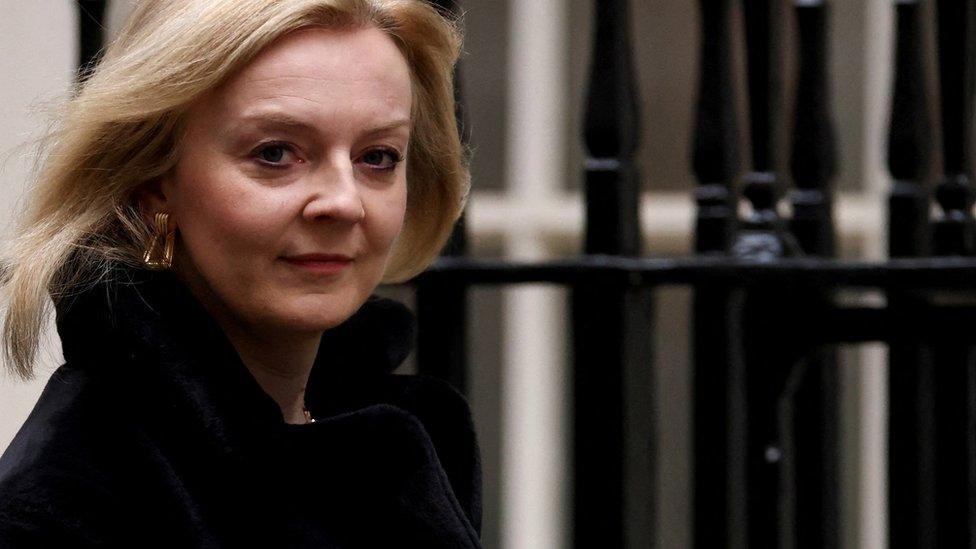
Liz Truss says a solution must be found to allow focus on "external issues" like the situation in Eastern Europe
But other grades of olive oil are used for food processing - the EU believes a risk assessment needs to be able to draw that distinction which is why they want more detailed codes.
There has also been progress on access to UK customs databases - long requested by the EU; their experts have got access and are beginning to understand how they might extract the data they need.
However, there appears to have been little progress on the issue of agri-food checks on goods moving from GB to NI.
Asked if the UK would trigger Article 16, which allows either side to unilaterally decide whether to stop implementing parts of the trade deal, Mrs Truss said that she wanted to improve the situation through talks.
"Article 16 is in the Protocol as a safeguard if things aren't working as they should," she said, after the talks.
'Laser focus'
Mr Sefcovic told a news conference in Brussels that the intensified negotiations on the protocol had produced "neither a breakthrough nor a breakdown".
He said "hard work" would continue with a "laser focus" on practical solutions.
"My objective remains the same - to provide Northern Ireland and all stakeholders on the ground with stability, predictability and opportunities stemming from the protocol," he said.
"Ultimately, this is the only way to protect the hard-earned gains of the Good Friday/Belfast Agreement in all its dimensions, while avoiding a hard border on the island of Ireland and minimising disruptions caused by Brexit without compromising the integrity of the EU's single market," he added.
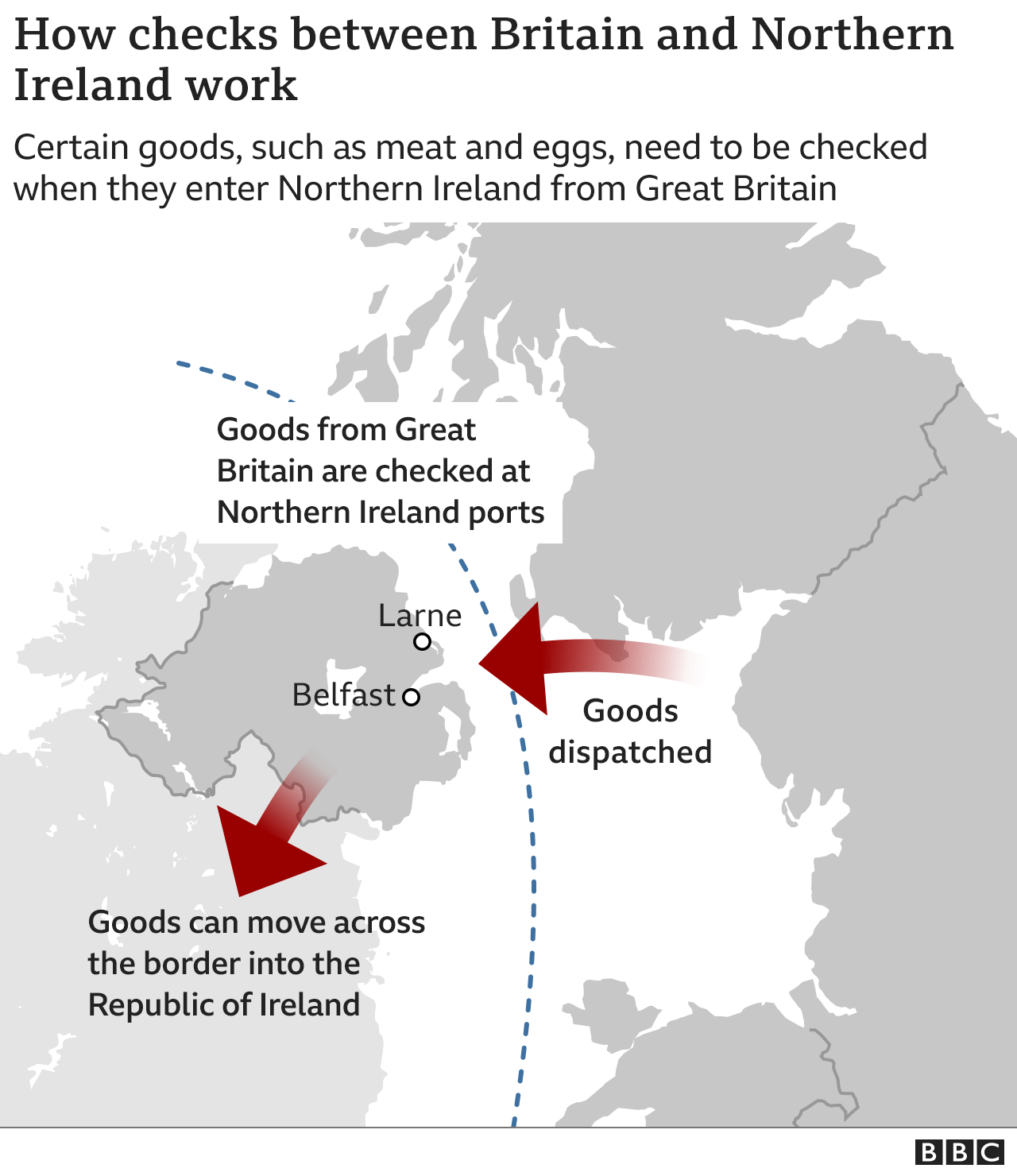

Northern Ireland's first and deputy first ministers normally attend the Joint Committee but those positions are vacant since the Democratic Unionist Party's (DUP) Paul Givan stepped down from the first minister's post.
He resigned as part of the DUP's campaign of opposition to the protocol.
Sinn Féin Junior Minister Declan Kearney did attend in their absence.
Meanwhile, the Speaker of the US House of Representatives, Nancy Pelosi, was asked on Monday about the possibility of any future trade deals between the UK and the United States.
Ms Pelosi said: "Our relationship in trade is dependent on how the Brexit accords are resolved". She added she wanted to see the "Good Friday accords honoured and for [the] border to remain the way it is".
She said she had told Boris Johnson months ago not to expect a bilateral trade agreement with the US "if there is an unravelling of the Good Friday accords in relationship to the border".
- Published2 February 2024

- Published17 February 2022
